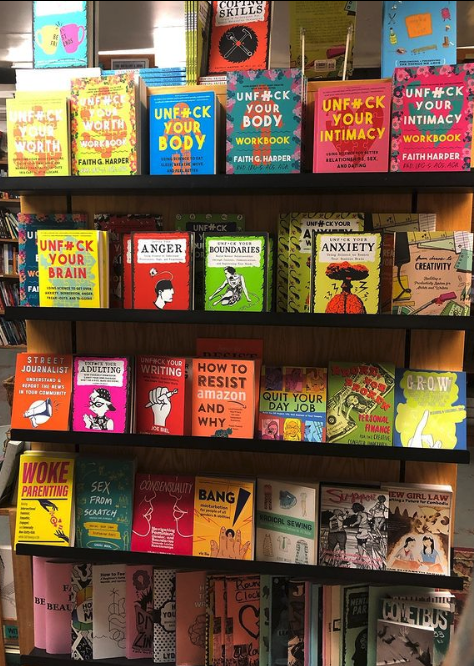We’re expanding our trade representation!

Last week we sent out a press release that began: “Microcosm Publishing is making some changes in our US trade representation, effective Jan 1, 2023.”
For the uninitiated in the publishing industry, this means that we will be working with a broader array of outside salespeople to get our books into bookstores (aka “the [book] trade”). Most publishers of our size (probably best described at this time as on the smaller end of “medium-sized”) work with a large trade distributor to get their books into bookstores. Microcosm has worked with several distributors on and off in the last 28 years, until the beginning of 2019 when we announced our return to independent distribution (which also ended our relationship with a certain giant online retailer). Since then, we’ve been working with three different independent groups of trade sales reps who really get our books, have relationships with bookstores across the US, and have done a stellar job connecting our books with those stores and their buyers.
As we grow and learn what works best, we’re making a few changes in this trade representation:
Abraham Associates will now represent Microcosm’s titles in the midwest US, including Indiana, Illinois, Iowa, Kansas, Kentucky, Michigan, Minnesota, Missouri, Ohio, Nebraska, North Dakota, South Dakota, and Wisconsin.
Bob Barnett (PW’s Rep of the Year for 2020) at Third Act Sales will represent Microcosm in Texas, Oklahoma, and Louisiana.
Imprint Group (which is merging with our existing rep group, the former Book Travelers West—the head of which, Kurtis Lowe, was PW’s 2022 rep of the year) will continue to represent Microcosm in the western US.
Como Sales Co. (group head Maureen Karb was nominated for PW Rep of the Year in 2020) will continue to represent Microcosm’s books in the eastern and southeast US.
Microcosm has been an independent publisher since 1996, and was named the fastest growing publisher of 2022 by Publisher’s Weekly. Microcosm’s year-to-date sales are up 37%.
Microcosm CEO Joe Biel commented, “We are thrilled to continue to expand our reach with these new sales reps, in order to create a world we want to live in and for everyone pushed to the margins to help themselves feel recognized.”
Abraham Associates Principal John Mesjak said, “Everyone in our group is excited to get started working with Microcosm, talking up their books in our territory. We’re always looking for publishers who bring interesting, passionate voices to the world; present a worldview that aligns with our own; and have a crew of smart publishing folks that we can work with. We love that all three of those boxes are ticked in Microcosm, and we can’t wait to get started!”
Microcosm is the distributor for Birdcage Bottom Books, Don Giovanni Records, and GOBLINKO, whose books will also be sold to stores by these groups.